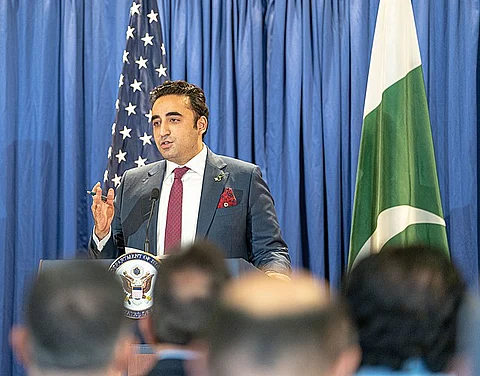

Former Pakistani Foreign Minister Bilawal Bhutto-Zardari has issued a stark warning that India’s suspension of the Indus Waters Treaty (IWT) could trigger "the first nuclear water war" in South Asia.
Speaking at the Middle East Institute (MEI), Bhutto-Zardari framed India’s actions as an existential threat, stating: "Water wars used to be a theory. India shutting off Pakistan’s water supply is laying the foundation for nuclear conflict".
He emphasized Pakistan’s stance that cutting its water supply constitutes "an act of war" driven by necessity, not aggression.
Former U.S. Ambassador to Pakistan Anne Patterson endorsed Islamabad’s demand for an independent investigation into April’s Pahalgam attack, which killed 26 tourists in Indian-administered Kashmir and sparked military clashes. Patterson criticized the international community for accepting India’s terrorism allegations without evidence, noting: "India was not required to present forensic proof after Pahalgam... This incident almost led to nuclear war". She urged a probe by agencies like the FBI or Scotland Yard to establish facts.
Simultaneous high-level delegations from Pakistan and India are courting U.S. officials amid heightened tensions. Pakistan’s team, led by Bhutto-Zardari, includes senior politicians and ex-envoys. They met Congressional Pakistan Caucus members, stressing that India’s "unilateralism and coercion" undermine peace. India’s delegation, headed by opposition figure Shashi Tharoor, aims to justify its strikes as counterterrorism while avoiding third-party mediation. Scholar Michael Kugelman called the visits a "high-octane effort" to sway Washington’s perceptions, with India historically enjoying stronger bipartisan support.
Pakistan contends that India’s IWT suspension violates international law and threatens 80% of Pakistan’s agriculture-dependent economy. Bhutto-Zardari warned that allowing such precedent would empower other "upper riparians" to weaponize water globally. Despite U.S. calls for de-escalation, India has rejected dialogue, with Foreign Minister Subrahmanyam Jaishankar insisting disputes remain "purely bilateral".